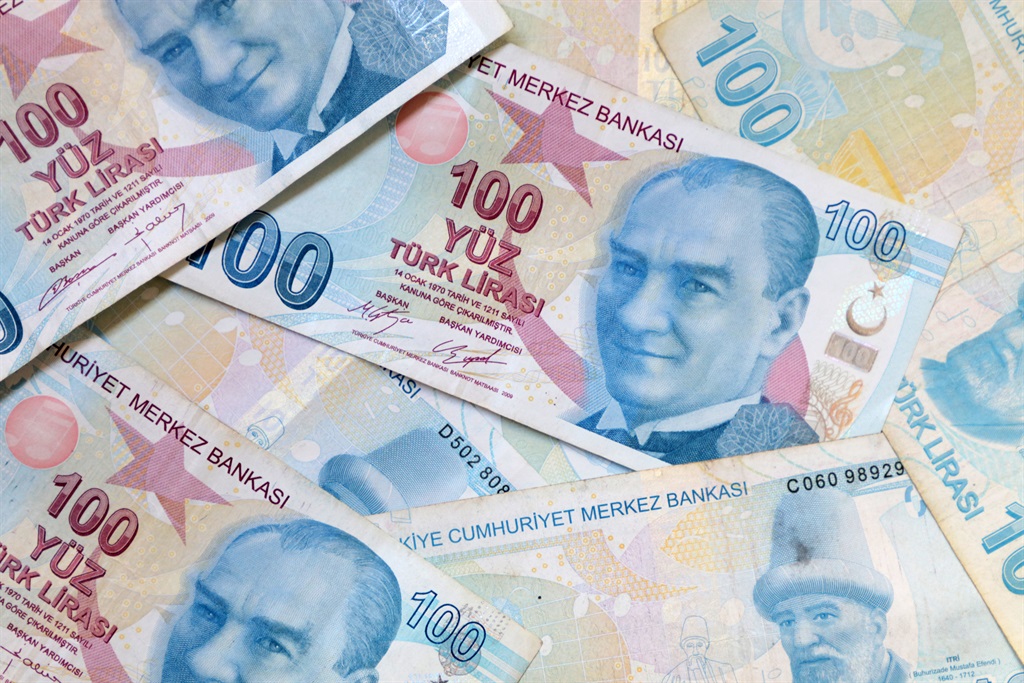
The Turkish currency, the Lira, is making global headlines having lost 44% of its value against the US dollar so far this year.
Emerging markets have followed suit, with the South African rand, the Mexican peso, the Russian ruble, the Chinese yuan and the Indian rupee feeling the pressure.
The rand has especially recorded the steepest drop in a decade.
The ongoing friction between the US and Turkey over Andrew Brunson – a US Christian missionary who is on house arrest, accused of terrorism – is not enough reason for South Africans to be concerned about their livelihoods.
For the Turks, it is a major concern given that the standoff has contributed to the US imposing tariffs on Turkey’s steel and aluminium imports.
Turkey is world’s sixth largest producer of steel and the 31st in aluminium production.
There are more causes of economic turmoil in Turkey. In July 2016, the attempted coup which left 249 people dead (as they sought to defend Recep Erdogan) kickstarted market instability.
The lira lost 7% against the US dollar immediately after the coup attempt.
The sweeping political purge that followed the 2016 coup attempt has led to the firing of 125 000 people state workers so far, introduction of emergency rule and brutal clamping down of the media and the opposition.
This is clear evidence of president Erdogan’s grip of power, having formerly become the most powerful leader since Mustafa Kemal Ataturk who founded the republic from the ruins of the Ottoman Empire.
Then, when President Erdogan was elected in 2017, he appointed his son in law, Berat Albayrak, as the Minister of finance.
A new face and the president’s son in law as the man in charge of the country’s finances is too risky for the markets.
Although in 2017 the Turkish economy was roaring at 7% growth, this largely came from credit obtained from foreign banks, both European and American.
The country’s external debt (total debt a country owes to foreign creditors) nearly doubled from 38% of GDP in 2008 to almost 70% today (about $450 billion) – the world’s largest foreign debt load relative to GDP for an emerging economy.
This suggests that there is a real possibility for local banks and companies to default given the higher cost of debt servicing created by a declining lira.
The series of events pointed above have accelerated inflation to 16%, more than triple the central Bank’s target of 5%.
And even then, as an ideological commitment to his supporters, Erdogan has refused to hike interest rates to tame consumer demand and prices.
Why are we talking about Turkey and what has this got to do with South Africa?
By August 2018, the Rand is the most overtraded currency in the world, with an equivalent of 17% of South Africa’s GDP traded daily.
Which is to say, currently the Rand is bought and sold excessively than the any other currency.
This is because South Africa, like most other emerging markets such as Brazil, India, Turkey, Thailand and South Korea follow a floating exchange rate.
A floating exchange rate is a regime where the currency price is set by the forex market based on supply and demand compared with other currencies.
This is in contrast to a fixed exchange rate, in which the government entirely or predominantly determines the rate.
For South Africa therefore, the question is not whether the Rand will be volatile.
The question is how much volatility would be seen over a period. And, given that the rand is a widely traded currency, it is highly exposed to frequent fluctuations.
The individuals and institutions that plan to acquire South African real and financial assets and therefore determine the currency fluctuation include commercial and investment banks, central banks, asset and fund managers, corporate institutions as well as pension funds.
How does a weak rand affect the economy? If the rand remains weak, this may lead to increased inflation rate (the rate at which prices for goods and services rise) which may lead to ordinary South Africans paying higher for goods and services, even though their incomes have not necessarily increased.
Most people end up financing their livelihoods through debt. The Reserve Bank may then increase interest rates to try and restrict consumer spending.
This makes it more expensive to pay back loans to the banks for those who already have acquired loans – including car loans and home loans.
On a personal level, to avoid being a victim of the behaviour of global capitalists, it is important to create medium term savings to cushion from economic shocks which the government has no control of, neither do you.
• Dr Jason Musyoka (PhD) is a post doctoral fellow (development economist) based at the Centre for the Advancement of Scholarship, University of Pretoria.




 Publications
Publications
 Partners
Partners








